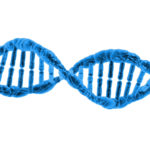In a recent essay, “The Recovery of Human Nature,” James Kalb discusses the contemporary effort to deny the existence of human nature and, beyond that, Nature herself. He observes that many people see Nature as a mindless, blind, and oppressive force that needs to be dominated by technology. He writes, “That line of thought leads to the insane view, which is now entirely mainstream, that we can advance the human good by destroying all substantive concepts of what people naturally are.” He criticizes a simplistic scientism that only recognizes physical knowledge as legitimate. “Human beings and societies are complex,” Kalb observes. “They involve meanings and other aspects of reality that transcend the purely physical.”
As far as it goes, Kalb’s critique is on the mark, but I believe that matters have degenerated beyond his analysis. We confront more than radical positivism. That would leave us with respect for a scientific view of Nature. Increasingly, however, science too is rejected, and with it, Nature in her entirety.
The Modern Rejection of Nature
Consider abortion. The argument that a baby inside his mother’s womb is less than a human being rejects a scientific perspective on Nature. From the moment of conception, the regulatory machinery of the cell is in place and programmed to develop fully, given a suitable environment. To reject the humanity of an unborn child is to reject science. This is not to say that science precludes one from arguing that certain humans should be put to death, but it does say that, in the case of abortion, science provides no ontological demarcation between those a society decides should live and those it decides should die.
Start your day with Public Discourse
Sign up and get our daily essays sent straight to your inbox.To a certain extent, it is in man’s disposition to reject Nature. He does not accept his environment as given, but restructures it to suit his needs. As he matures through the centuries, he moves from forming a hut with readily available materials to protect him from the weather, to building an aqueduct to supply a city with water from many miles away, to harnessing nuclear fission to provide a virtually boundless supply of energy. With a never-ending expansion of technology seemingly lying before him, it is not surprising that a person can envision changing both his environment and himself to suit his every whim and find any limitation to be an unjust constraint of his freedom.
But this “freedom” is not the Augustinian freedom manifested in one’s liberation from the chains of his passions; rather, it is the freedom from constraint upon one’s submission to his passions. It is the freedom to express and manifest an unchecked will. Nicholas Berdyaev tells us where this freedom leads: “Freedom, insofar as it is self-will and self-affirmation must end in a negation of God, of man, and of the world, and of freedom itself.” We should not be surprised that the rejection of God and of Nature often go hand in hand.
Can this glorification of self-will be laid at the door of science? No doubt the extraordinary achievements of science and technology since the “scientific revolution” of the seventeenth century have led some scientists—and many more ersatz scientists—to justify a prideful rejection of God and a disparaging arrogance toward Nature. But many of the greatest minds, including Isaac Newton and Albert Einstein, have stood in awe before the magnificence of Nature.
When asked by a sixth grader, “Do scientists pray?” Einstein responded, “Every one who is seriously involved in the pursuit of science becomes convinced that a spirit is manifest in the laws of the Universe—a spirit vastly superior to that of man, and one in the face of which we with our modest powers must feel humble.” (One must keep in mind when reading this that Einstein’s God is Spinoza’s God.)
The root of modernity’s rejection of Nature does not lie in science. In his Meditations on First Philosophy (1641), Descartes posited a radical subjectivity. To Descartes, the world is one of his own imaginings. These constitute the “true and immutable nature” of his universe. A pervasive sense of unreality permeates the pages of his Meditations. Descartes sits alone, isolated with his own thoughts, circling deeper and deeper into nothingness until even he disappears into his own thoughts, leaving only a disembodied thinking thing.
The Humbling Intersubjectivity of Science
Science rejects this isolation, this freedom set in nothingness. Science depends on reason, but it does not trust reason alone. Scientific validity is judged by the accuracy of quantitative predictions. These are supplied by reason, but their veracity is determined by their concordance with Nature. Arguments and understandings carry no weight in themselves. They must stand the test of observation. Two people can argue interminably over opposing theories. But which one makes better predictions? Science rejects subjectivity in favor of intersubjectivity. It is communal.
Because science is limited in its claims, it has a cautioning effect across the entire domain of human thinking. Good scientific training is strenuous and humbling, because science is unforgiving. Suppose a large body of opinion supports some theory yet to be tested—nay, suppose everyone supports the theory. Predictions are made, and they fail. Well, that’s that. No excuses are permitted. The theory must be rejected.
To spare society from the imposition of subjective pipe dreams, the prudence characteristic of valid scientific thinking needs to permeate the entire intellectual order. One need only think of the toll in human suffering resulting from empty phrases like Rousseau’s “general will” when men of action like Robespierre impose such subjective delusions upon society. Certainly prudence is not restricted to science, but to the extent that science is the dominant paradigm of our time, it is imperative that it serve as an exemplar of sound judgment.
The Danger of Shallow Draughts
Science encounters huge mathematical, computational, and experimental impediments when trying to model the behavior of extremely complex systems such as a human cell. Our practical aim is to perturb the system to favorably alter its behavior, such as stopping the proliferation of cancerous cells. We are bedeviled by totally unexpected responses, because our knowledge is uncertain, and complex systems can react strongly to small disturbances, often in ways not readily connected to the disturbance. This is the nature of Nature. The sensible person recognizes human limitations by proceeding with caution and not trying to overly fine-tune the system.
In contrast, the impetuous person reasons from the particular to the general without thought as to whether his small sample is sufficiently representative of the whole or whether his simplified conception of the whole provides a sufficient basis for reasoning about the whole. This intellectual type appears everywhere, infecting science with grandiose theories possessing neither precise mathematical formulation nor demonstrable predictive capacity. They swarm like locusts in politics and the burgeoning bureaucracy, where they desire to transform humanity into their fanciful conceptions. They are unsatisfied with merely external control. They want to control human thought and language under guises like inclusiveness, social justice, and political correctness.
To a significant extent, such banalities owe their ascendancy to a dysfunctional “education” system that stunts young minds with platitudes, leaves them ignorant of the summits of their civilization, and fails to instill in them the virtues necessary for a viable republic. Perhaps it would be wise to recall the words of Alexander Pope with which high school English teachers try to impart humility to their students:
A little learning is a dangerous thing;
Drink deep, or taste not the Pierian spring:
There shallow draughts intoxicate the brain,
And drinking largely sobers us again.
How shallow the draughts have become!
One need not be a scientist to appreciate the foolhardiness of naively interfering in a complex system. Edmund Burke explicitly appraised the peril of tampering with the functioning of a political system. Fyodor Dostoevsky addressed the blindness of those with utopian visions of human nature. Is not Dostoevsky’s Peter Verkhovensky a perfect archetype of so many modern intellectuals? “He first invents himself a man and then lives with him.” Our mathematical understanding of complexity validates the apprehensions of Burke and Dostoevsky.
As I have discussed in a previous article, authentic scientific thinking has been eroding for half a century. As it continues to do so, its moderating effects will become less of a bulwark against rationalizations serving as camouflage for the will to power. This is not to say that only scientific thinking is valid. It is far too limited to take into account the deeper aspects of man’s nature: faith, purpose, morality, love—these cannot be reduced to mathematical formulae. Rather, the discipline gained from having to limit oneself to precise formulation and to consistency with Nature leavens the entire intellectual enterprise and helps contain the dangerous hubris of man.














